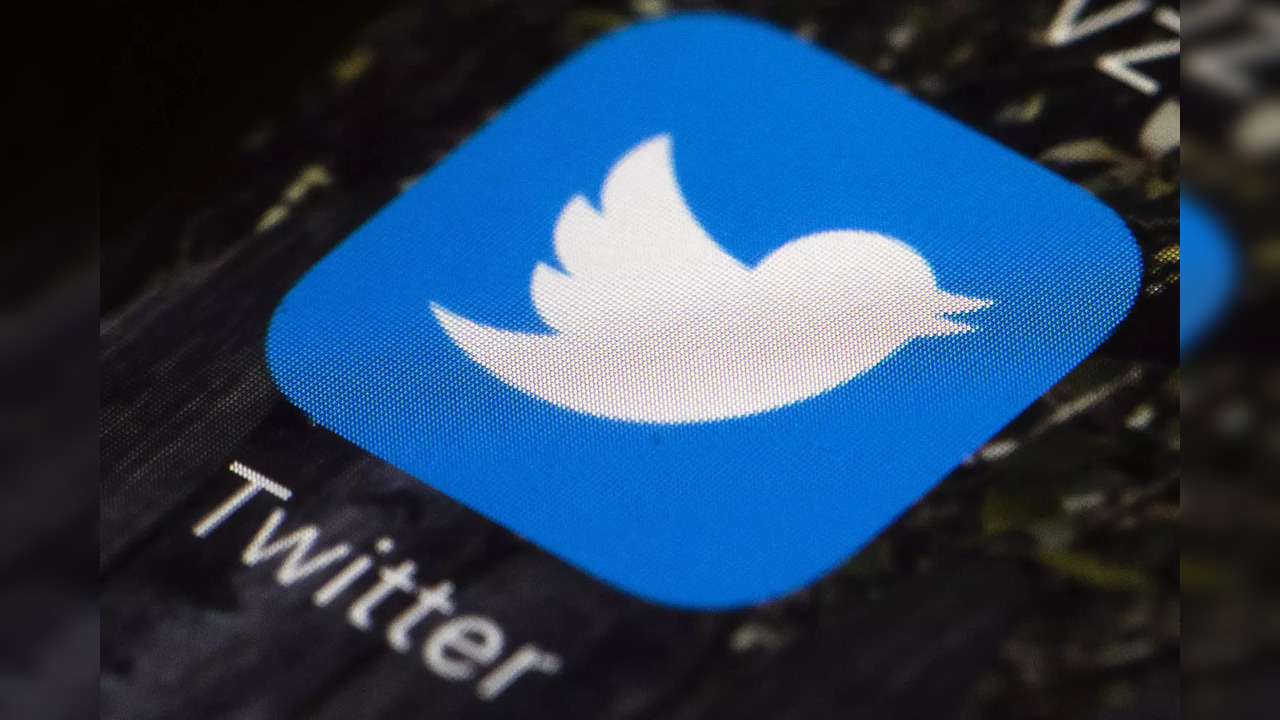Table of Contents:
- Who is Ron Filipkowski?
- The State of Public Conversation
- What Makes a Twitter Account Unique?
- Are Account Shenanigans Affecting Twitter Ron Filipkowski's Experience?
- Why Do Some Users Feel Twitter Is Not Working Well?
- Observations on Content and User Behavior
- How Have Changes Impacted Twitter's Value?
- Advertisers' Retreat and its Reasons
- What Does This Mean for the Future of Twitter Ron Filipkowski's Platform?
It's almost like everyone who spends time on social media has noticed a few things shifting around lately. This is particularly true for a place like Twitter, which many people, perhaps like Ron Filipkowski, use to share thoughts and connect with others. What started as a simple way to broadcast short messages has, you know, certainly changed a bit, bringing with it both new ways to communicate and some fresh challenges for people trying to make sense of it all.
The way people talk and interact on this service is, in some respects, always evolving. There's been a stated aim to make conversations more open and respectful, to help foster a better collective experience for everyone involved. But, as a matter of fact, the daily reality for users can often feel quite different from these stated goals, creating a kind of push and pull between what the platform hopes to be and what it sometimes feels like.
From how accounts are managed to the kinds of discussions taking place, there are many elements that shape how we experience this social space. We'll take a closer look at some of these shifts, considering the overall well-being of the platform and what these changes might mean for its many participants, including those who, like twitter ron filipkowski, are active voices there.
Who is Ron Filipkowski?
When we consider someone like Ron Filipkowski and their connection to a platform such as Twitter, it's natural to wonder about their background. The information provided for this discussion, however, does not include any personal details or biographical facts about Ron Filipkowski himself. Therefore, while we are talking about the platform in relation to individuals like him, we cannot share specific life details or a personal data table here, as that would involve creating information not present in the given text. Our focus remains on the platform's characteristics and user experiences, which people like twitter ron filipkowski navigate daily.
The State of Public Conversation
The folks running Twitter have often said they want to make the public discussions happening on their service better. They aim for an environment where people can talk freely, where things are open, and where folks treat each other with respect. This idea of making things better, of having polite exchanges, is, you know, something they talk about quite a bit. It’s about building a space where everyone feels okay to share their thoughts, and where the overall feeling of the conversation is good for the whole group. They often say that the success of the platform is tied to how well they help encourage these sorts of interactions, so that people can feel good about what they are doing there.
For a platform that relies on so many different voices, creating a place where people can truly connect and exchange ideas without too much friction is a rather big task. It involves a lot of effort to set up guidelines and systems that try to guide how people interact. The goal is to make sure that the vast collection of talks happening every second contributes to something positive, something that helps everyone feel more connected and less stressed. This focus on the health of the conversations is, in some respects, a continuous effort, one that shapes how the platform develops and how people like twitter ron filipkowski experience it day by day.
Thinking about how millions of people from all walks of life communicate, it's clear that getting everyone to play nice is a huge undertaking. There are so many different viewpoints and ways of speaking, so it’s nearly impossible to please everyone all the time. But the push to have more open and civil exchanges shows a clear direction, a desire to make the platform a more welcoming spot for everyone who uses it. This aspiration for better interactions shapes many of the decisions made about how the service operates, trying to steer the collective chatter towards something more constructive. So, this idea of a healthy public discussion is something that is always being worked on, with the hope that it makes the experience better for all users.
What Makes a Twitter Account Unique?
When you join Twitter, you get a special name, which is your @username. This name is, you know, your own personal tag on the platform, and it always starts with that little @ symbol. It's how people find you, how they mention you in their messages, and how you stand out from everyone else using the service. Think of it as your digital fingerprint, a way for others to know exactly who they are talking to or about. This unique identifier is really important for building your presence and making connections with other people. It’s how you get recognized and how your messages are tied back to you.
The advice often given is to pick a @username that is, arguably, easy to remember and also simple to understand. It's usually a good idea to choose something that is, more or less, similar to your actual name or a name you are commonly known by. This makes it much easier for friends, family, or even just folks who know you from elsewhere to find you on the platform. A clear and straightforward name helps people connect with you without having to guess or search too much. It’s about making things as easy as possible for others to recognize you and interact with your messages, which is pretty essential for anyone trying to build a following, like perhaps twitter ron filipkowski.
Having a distinct and memorable @username helps to establish your identity in this big online space. It's not just a string of letters and numbers; it’s a part of how you present yourself to the world. A well-chosen name can, in a way, make you more approachable and help others feel like they know who they are engaging with. It also helps to prevent confusion, ensuring that your messages are attributed to the right person. So, while it might seem like a small detail, your @username plays a pretty big part in how you are seen and how you participate in all the conversations happening on the platform.
Are Account Shenanigans Affecting Twitter Ron Filipkowski's Experience?
It seems that there are some rather odd things happening with accounts on Twitter, which many people find quite frustrating. There's talk of what some call "dumb shenanigans" that are causing accounts to, you know, disappear or get shut down. At the same time, new accounts are constantly popping up, creating a situation that feels a bit like playing a game of "whack-a-mole" for those trying to keep things in order. This constant cycle of accounts appearing and disappearing, or acting in ways that are not helpful, can make the platform feel, arguably, less stable and reliable for regular users.
This kind of activity can be quite disruptive to the overall experience. When legitimate accounts are affected or when people are constantly seeing new, unwanted accounts, it can make it harder to have real conversations. It’s like trying to talk in a crowded room where some people are constantly shouting or leaving, and new people keep rushing in. This makes it difficult to follow along or to feel like you are part of a consistent community. For someone like twitter ron filipkowski, who might use the platform for serious discussions or to share important observations, these sorts of interruptions could be quite bothersome, potentially affecting how they interact with their followers and the wider public.
The constant appearance of these new, sometimes questionable, accounts also suggests a challenge for the platform's ability to manage its user base. It’s a continuous effort to identify and deal with accounts that might not be following the rules or that are creating a negative atmosphere. This ongoing struggle to keep things tidy and fair is, you know, a big part of maintaining a good user experience. If users feel that the platform is overrun with these kinds of activities, it can certainly make them question how useful or enjoyable the service truly is for their daily interactions and information gathering.
Why Do Some Users Feel Twitter Is Not Working Well?
There's a feeling among some people that Twitter is, to be honest, not quite as good as it used to be. This sentiment suggests that the overall performance or the user experience has taken a bit of a dip. When people say something is "kind of shit," it usually means they are experiencing frustrations or disappointments with how it operates. This could stem from various issues, like seeing more unwanted content, having trouble with features, or simply feeling that the platform isn't serving its original purpose as effectively as before. It’s a general sense of dissatisfaction that can color a person's entire time spent on the service.
This feeling of things not working well can come from a range of sources. Perhaps there are more technical glitches, or maybe the feed of messages feels less relevant than it once did. It could also be that the types of interactions have changed, leading to a less pleasant atmosphere for some users. When a platform that people rely on for news, connection, or entertainment starts to feel unreliable or less enjoyable, it naturally leads to these kinds of comments. For someone like twitter ron filipkowski, who might be a seasoned user, noticing these changes could be particularly noticeable, impacting their daily routine on the platform.
The general sense of things being "kind of shit" also points to how important the small details are in shaping a user's perception. It's not always one big thing, but rather a collection of little annoyances or shifts that add up over time. This could include issues with how messages are shown, how easy it is to find what you're looking for, or even just the overall responsiveness of the service. When these elements combine, they can create a pervasive feeling that the platform isn't quite hitting the mark anymore, leading many to express their disappointment quite openly, which is, you know, a pretty common thing to see.
Observations on Content and User Behavior
It appears there are some interesting observations about the kinds of accounts and content present on the platform. The text mentions specific names like Jessica, Mimi, Lily, Rolla, and Sarah, suggesting that there's a pattern or a noticeable presence of certain types of profiles. This could mean that users are seeing a particular kind of content more often, or that these names represent a category of accounts that are quite visible. It makes you wonder, you know, what kind of activities these accounts are involved in and why they are being singled out for observation by users.
Furthermore, there's a discussion about how certain services, like those involving escorts, operate not just on Twitter but also on other social media sites like Reddit and specialized platforms such as Tryst, PD, TER, and P411. It's explained that these operations often involve a "booker" or a "personal assistant" working behind the scenes. This suggests a structured approach to how these individuals manage their presence and services online, rather than just being individual users. This kind of organized activity, naturally, presents a unique set of challenges for content moderation and for maintaining the desired atmosphere on a public platform.
The information also touches on the pictures used by these sites, noting that they come from "a few formats." This could imply that there are common templates or sources for the images, perhaps to maintain a certain look or to make the process of setting up profiles more efficient. The presence of such organized activity, with assistants and specific image formats, highlights a different kind of user behavior compared to general personal sharing. It raises questions about how platforms manage these types of accounts and how their presence affects the overall user experience for people like twitter ron filipkowski, who might be just trying to follow news or engage in general discussions. It’s a rather complex aspect of online content.
How Have Changes Impacted Twitter's Value?
There's a clear indication that Twitter's financial worth has seen a rather significant drop since it was acquired a couple of years ago. The text states that the platform is now worth more than 70% less than when it changed hands. This is a pretty substantial decrease, showing a big shift in how the market views the company's prospects. A drop of this size suggests that many things have happened that have made investors and others believe the platform is not as valuable as it once was. It's a measure of how the business side of things has been affected by the changes that have taken place over a relatively short period.
This decline in value is, in some respects, a reflection of how the platform is perceived by the broader business community. It's not just about the number of users, but also about the company's ability to make money and attract partnerships. When the value drops so sharply, it signals that there are serious concerns about the company's future earnings or its stability. This can have a ripple effect, influencing everything from employee morale to the willingness of other businesses to work with the platform. It’s a pretty direct indicator of the challenges the service has been facing in the time since its ownership changed hands, impacting even how people like twitter ron filipkowski might view the platform's longevity.
The financial health of a social media platform is, you know, often tied to its ability to attract and keep advertisers, as well as its user base. A significant decrease in value suggests that one or both of these areas might be struggling. It points to a situation where the previous business model or the new strategies put in place are not yielding the expected results. This sort of financial downturn can also influence the resources available for improving the platform, developing new features, or even addressing user concerns. So, the 70% decrease is a really strong signal about the business challenges that have come about.
Advertisers' Retreat and its Reasons
A big part of Twitter's financial struggles seems to be connected to advertisers pulling back their support. The text mentions that companies that used to place ads on the platform have, you know, evidently decided to leave. This kind of departure by advertisers is a major blow to any social media service, as advertising revenue is typically a main way these platforms make money. When businesses decide they



Detail Author:
- Name : Aniya Connelly
- Username : carmela09
- Email : jenkins.norberto@stark.com
- Birthdate : 1978-03-28
- Address : 45446 Hollis Harbors Apt. 050 East Timmothy, MA 61182
- Phone : 1-303-663-8472
- Company : Zulauf, Batz and Zieme
- Job : Substation Maintenance
- Bio : Iure vitae ullam animi harum quo laborum aut. Quis nisi est dolore accusantium impedit debitis. Veritatis minima debitis temporibus unde culpa. Dolore quas magnam voluptas dolorem labore.
Socials
instagram:
- url : https://instagram.com/jbrakus
- username : jbrakus
- bio : Voluptatum dolorum doloremque ipsa rem quisquam quo. Cum explicabo totam error omnis in suscipit.
- followers : 5374
- following : 745
twitter:
- url : https://twitter.com/brakusj
- username : brakusj
- bio : Et rem rerum rerum. Sed veniam atque eum voluptate enim. Non aut est non enim corporis.
- followers : 6897
- following : 1904
facebook:
- url : https://facebook.com/brakusj
- username : brakusj
- bio : Harum dignissimos doloribus qui quas minus. Rerum nobis ea cumque dolor eaque.
- followers : 1231
- following : 183
tiktok:
- url : https://tiktok.com/@brakus2019
- username : brakus2019
- bio : Qui sint molestiae quis repellat perferendis optio.
- followers : 3764
- following : 953
linkedin:
- url : https://linkedin.com/in/jbrakus
- username : jbrakus
- bio : Fugiat dolor qui delectus suscipit amet.
- followers : 1784
- following : 1971

